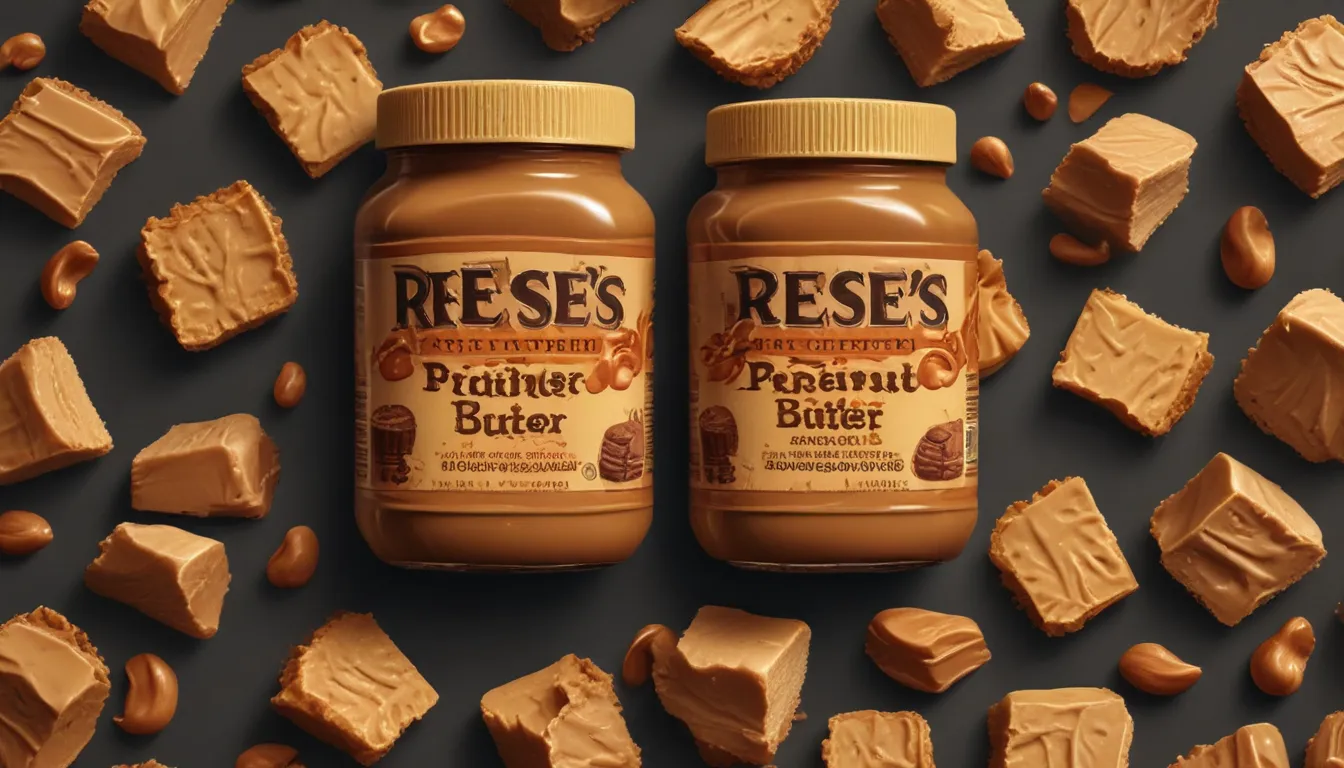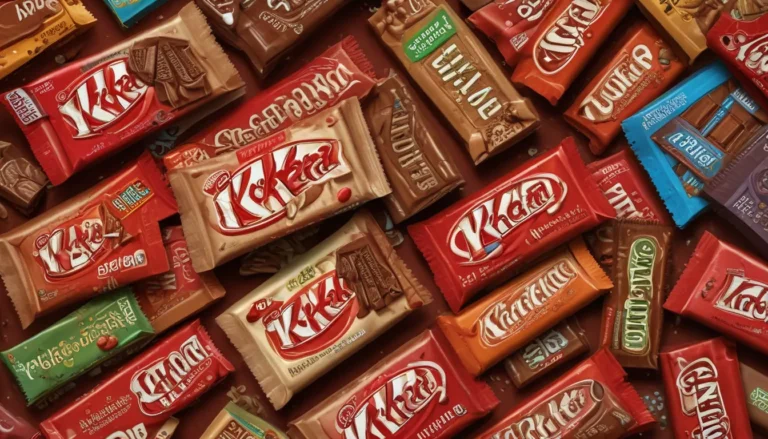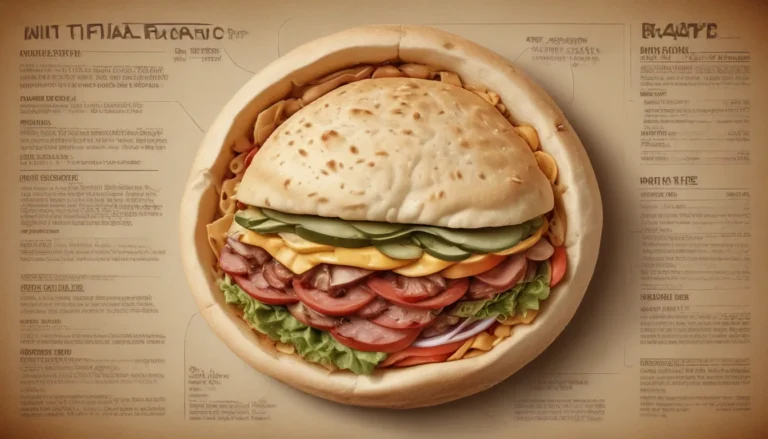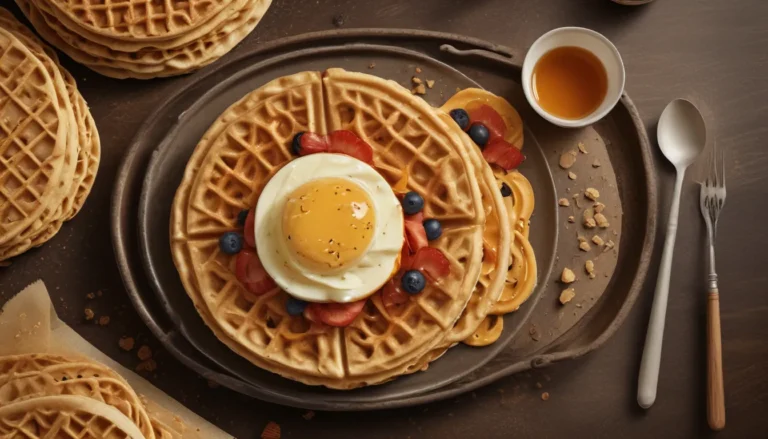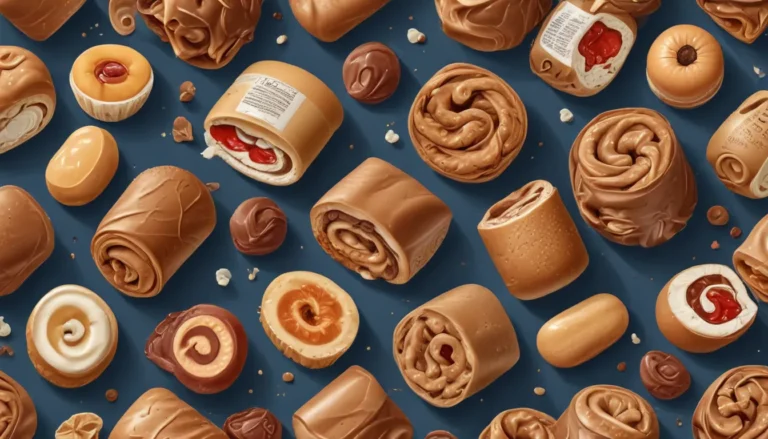The pictures in our articles might not always show exactly what the text is talking about. We use these images to make the article more interesting and eye-catching. They are there to add to the text, but not to replace it or show every detail.
If you're a fan of the delightful combination of chocolate and peanut butter, then Reese's Peanut Butter cups are probably a staple in your snack rotation. These iconic treats have been a beloved favorite for years, offering a perfect blend of creamy peanut butter filling and smooth milk chocolate coating that appeals to all ages. But beyond their delicious taste, have you ever stopped to consider the nutritional aspects of Reese's Peanut Butter cups? In this article, we'll uncover the 19 key nutrition facts of Reese's Peanut Butter cups, shedding light on their ingredients, calories, fat content, protein, and more. Whether you enjoy them as an occasional indulgence or as part of your daily snack routine, understanding the nutritional profile of these popular candies can help you make informed choices about including them in your diet. So let's delve into the fascinating world of Reese's Peanut Butter cups nutrition!
Key Takeaways:
- Indulge in Reese's Peanut Butter cups with 210 calories per serving, but be mindful of the 13 grams of fat and 21 grams of sugar they contain. Moderation is key!
- Enjoy the 4 grams of protein per serving in Reese's Peanut Butter cups, adding a nutritious touch to this sweet treat.
Serving Size
The recommended serving size for Reese's Peanut Butter cups is 2 peanut butter cups.
Calories
A serving of Reese's Peanut Butter cups contains approximately 210 calories.
Total Fat
Each serving of Reese's Peanut Butter cups contains about 13 grams of total fat.
Saturated Fat
Out of the total fat content, around 4 grams is saturated fat.
Trans Fat
Reese's Peanut Butter cups do not contain any trans fat.
Cholesterol
There is no cholesterol in Reese's Peanut Butter cups.
Sodium
A serving of Reese's Peanut Butter cups has approximately 140 milligrams of sodium.
Total Carbohydrates
Each serving of Reese's Peanut Butter cups contains about 23 grams of total carbohydrates.
Dietary Fiber
Reese's Peanut Butter cups provide 1 gram of dietary fiber per serving.
Sugars
There are approximately 21 grams of sugar in each serving of Reese's Peanut Butter cups.
Protein
A serving of Reese's Peanut Butter cups contains about 4 grams of protein.
Vitamin A
Reese's Peanut Butter cups do not contain significant amounts of Vitamin A.
Vitamin C
There is no Vitamin C in Reese's Peanut Butter cups.
Calcium
Each serving of Reese's Peanut Butter cups has approximately 2% of the recommended daily intake of calcium.
Iron
Reese's Peanut Butter cups do not contain significant amounts of iron.
Allergen Information
Reese's Peanut Butter cups contain peanuts and are processed in a facility that also handles tree nuts, soy, and dairy.
Shelf Life
Reese's Peanut Butter cups have a long shelf life, typically lasting for several months.
Popular Ingredient Combination
Reese's Peanut Butter cups are often used in desserts and recipes paired with ingredients like chocolate, bananas, and marshmallows.
Enjoyment Factor
Beyond being a sweet treat, Reese's Peanut Butter cups invoke feelings of joy and nostalgia for many who have grown up savoring their delicious flavors.
Now armed with these 19 Reese's Peanut Butter Nutrition Facts, you can enjoy this delectable treat with a deeper understanding of its nutritional profile. So whether you prefer eating it on its own, baking with it, or using it as a topping, Reese's Peanut Butter cups are sure to satisfy your cravings!
Conclusion
Reese's Peanut Butter cups not only offer a delicious taste but also provide some nutritional benefits. With their blend of rich chocolate and creamy peanut butter, they are a popular choice for a sweet indulgence. However, remember to enjoy them in moderation as part of a balanced diet.
With a good amount of protein and healthy fats from the peanuts, Reese's Peanut Butter cups can serve as a satisfying snack. Additionally, they contain essential vitamins and minerals like vitamin E, magnesium, and potassium.
While it's okay to treat yourself to Reese's Peanut Butter cups occasionally, it's crucial to pay attention to portion sizes and your overall calorie intake. Include them as part of a diverse and balanced diet, along with plenty of fruits, vegetables, whole grains, and lean proteins.
So go ahead and relish the goodness of Reese's Peanut Butter cups, but always maintain a mindful approach to your nutrition and wellness.
FAQs
Q: Are Reese's Peanut Butter cups a healthy snack?
A: While Reese's Peanut Butter cups contain protein and healthy fats from the peanuts, they should be enjoyed in moderation as part of a balanced diet. They can be a tasty treat but are not considered a health food due to their high sugar and calorie content.
Q: How many calories are in a serving of Reese's Peanut Butter cups?
A: A standard serving size of Reese's Peanut Butter cups is two cups, which amounts to approximately 220 calories. However, the caloric content may vary depending on the size and type of Reese's cups you consume.
Q: Do Reese's Peanut Butter cups contain gluten?
A: No, most Reese's Peanut Butter cups do not contain gluten. However, it's essential to check the packaging for any potential cross-contamination or specific labeling if you have a gluten intolerance or allergy.
Q: Can I enjoy Reese's Peanut Butter cups if I have a peanut allergy?
A: No, if you have a peanut allergy, it is crucial to avoid consuming Reese's Peanut Butter cups as they contain peanuts as a primary ingredient. There are alternative options available that are made with other nut or seed butters.
Q: Are Reese's Peanut Butter cups suitable for vegetarians?
A: Yes, Reese's Peanut Butter cups are generally considered suitable for vegetarians as they do not contain any ingredients derived from animals. However, it is always recommended to check the ingredient list for any potential variations or updates.
Understanding the nutritional facts of Reese's Peanut Butter cups can empower you to enjoy this classic treat in a mindful and balanced way. So whether you're treating yourself to a sweet snack or incorporating them into your favorite recipes, savor the taste of Reese's Peanut Butter cups while keeping your overall health and well-being in mind.
